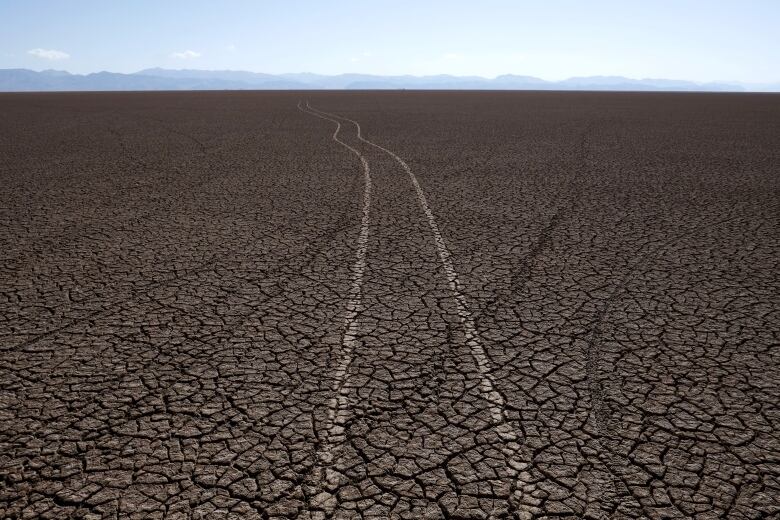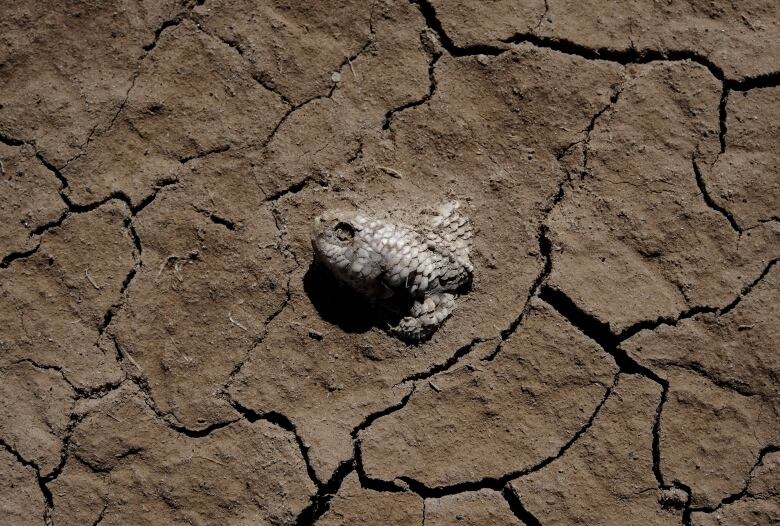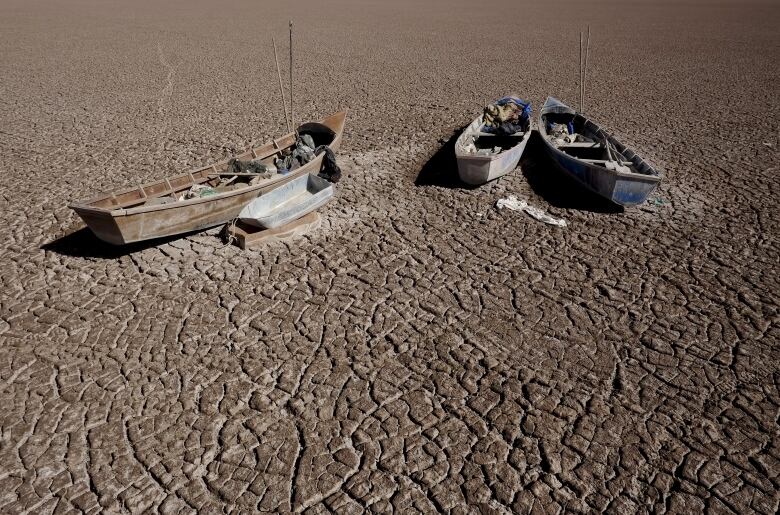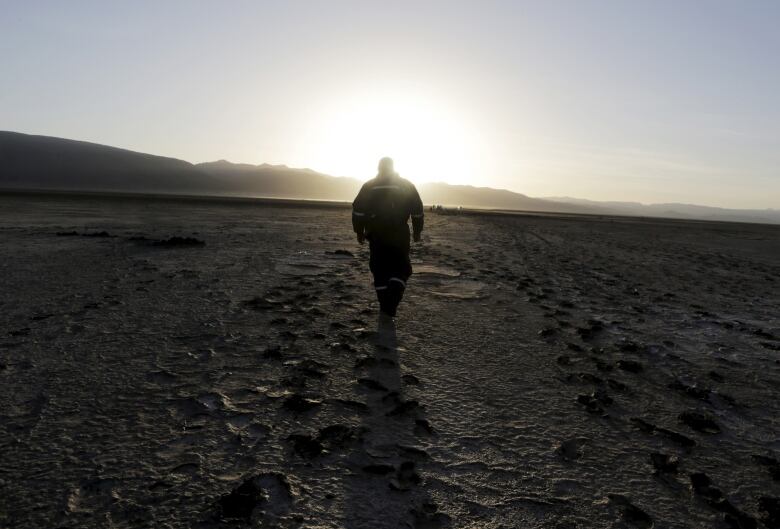Lake Poopo, Bolivia's 2nd-largest lake, dries up
Climate change has boosted temperatures, tripling evaporation
What happens when a lake dries up entirely?In the case of the Lake Poopo in Bolivia, the Andean nation's formerly second largest after the famed Titicaca, the answer is nothing short of devastation.
- Colonial church uncovered by drought in Mexican reservoir
- California's vanishing lakes are a climate change cautionary tale
The saltwater lakewas located in the Bolivianaltiplanoat an altitude of 3,700 metres.
There should be some rain. But that's not happening and so there's nothing.- Valerio Calle Rojas, fisherman
The government has declared the area a "disaster zone,"but many say not enough has been done to make the area sustainable again.
"We have no lake. There were flamingos. But after the first few days of December, we are not surprised the lake has dried up,"ValerioCalleRojas,one of 150 fishermen from theUntavicommunity, told Reuters.
'40 days ago there was water'

Rojas explained Lake Poopo's gradual water loss.
"From corner to corner, it is dry. In the 90's there was at least 2,000 square kilometres (772 square miles) of water (in the lake). After that, the water level began going down, In 1995, 1996, there was a drought as well, and the water dried up, but it came back quickly,"he said. "Right now the water should be coming back at least a little bit. There should be some rain. But that's not happening and so there's nothing,"
Mining outfits depended on the lake
Thesituation has been made all the more acute by the building up of metres-high sediment from local mining that has no water to combine with, leaving much of the local land full of a reddish sand.

Climate change blamed
Local specialists have no trouble identifying the role of climate change.
"Lake Poopo has been tracked for about 60 years and there has been evidence that climate change has had an effect in the last decade, from the 90's in the 20th Century. The temperature has gone up 0.9 degrees Celsius,"said Milton Perez, a professor at the Oruro Technical University.
Thathas made water evaporate three times as fast between rains. He went on to note the changing climate patterns.
More frequent El Nino events
The El Nino phenomenon, a warm patch in thePacific Ocean that can lead to heavy rainfall in some parts of the world and droughts in others, used to happenonce every 10 years,Perez said.

"So you have it one year and then another, and the LakePoopohad eight years of normal climate behaviour with regards to precipitation and temperature so maintained its normal status as it has always been."
Now, because of global warming, it happens every three years, he said.
"So, one year of El Nino, one year La Nina, and in the best of cases one normal year. One year is not sufficient for the lake to recover. And it's only going to get worse."
Animal die-off
The crisis came to a head in late 2014 with a massive dying off of local animal life. The death toll among fish has been estimated in the millions. An additional 500 or so birds, including flamingoes and ducks also died off.

Locals forced to move on
NormaMolloof the Centre of Ecology and Andean Villages (CEPA), said the lack of water and fish isdefinitely affecting local communities.

She added that her institution istrying to provide support so thecommunities can organize projects that can give thema better quality of life.
For local fisherman Calle Rojas and his five children, it hasn't been enough. He is thinking of making the same decision as has been made by roughly two thirds of his community of some 500 families picking up and moving to a new city in Bolivia, Argentina or Chile.














_(720p).jpg)


 OFFICIAL HD MUSIC VIDEO.jpg)
.jpg)



























































































